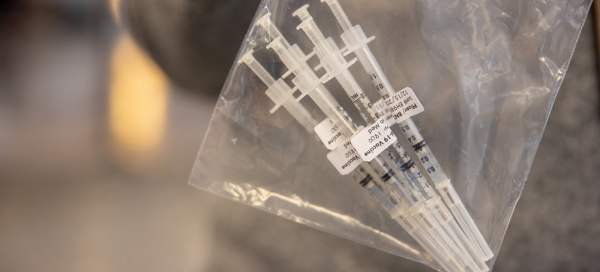
Question
Do the COVID-19 vaccines contain aborted fetal cells?
Answer from infectious diseases expert James Lawler, MD
No, the COVID-19 vaccines do not contain any aborted fetal cells.
However, Pfizer and Moderna did perform confirmation tests (to ensure the vaccines work) using fetal cell lines. And Johnson & Johnson uses fetal cell lines in vaccine development, confirmation and production.
But it’s important to have the full context: Fetal cell lines are not the same as fetal tissue.
Fetal cell lines are cells that grow in a laboratory. They descend from cells taken from elective abortions in the 1970s and 1980s. Those individual cells from the 1970s and 1980s have since multiplied into many new cells over the past four or five decades, creating fetal cell lines. Current fetal cell lines are thousands of generations removed from the original fetal tissue. They do not contain any tissue from a fetus.
Vaccine makers may use these fetal cell lines in any of the following three stages of vaccine development:
- Development: Identifying what works
- Confirmation: Making sure it works
- Production: Manufacturing the formula that works
When it comes to the COVID-19 vaccines currently approved for emergency use, neither the Pfizer nor Moderna vaccines used fetal cell lines during the development or production phases. (So, no fetal cell lines were used to manufacture the vaccine, and they are not inside the injection you receive from your doctor.) However, both companies used the fetal cell line HEK 293 in the confirmation phase to ensure the vaccines work. All HEK 293 cells are descended from tissue taken from a 1973 elective abortion that took place in the Netherlands.
The Johnson & Johnson vaccine is a bit different. It is an adenovirus vector vaccine. (Adenovirus is the virus that causes the common cold. The virus in this vaccine has been changed so that it does NOT cause illness.) With this type of vaccine, a carrier, in this case adenovirus, acts as a delivery vehicle. The adenovirus has had the coronavirus spike protein added to its DNA. The adenovirus carries that genetic material into your body, delivering its modified DNA to your cells. Your cells will then make the spike protein, activating your immune system. Once activated, your immune system creates antibodies to fight off the spike protein.
To make their virus vector vaccine, Johnson & Johnson infects PER.C6 fetal cell line cells with adenovirus. All PER.C6 cells used to manufacture the Johnson & Johnson vaccine are descended from tissue taken from a 1985 elective abortion that also took place in the Netherlands. They use this cell line because it is a well-studied industry standard for safe and reliable production of viral vector vaccines.
None of the COVID-19 vaccines in development use fetal cells taken from recent abortions.
We understand this topic is very sensitive and important within communities of faith. We want everyone to feel like they are making a fully informed decision. We encourage anyone with concerns about the use of fetal cell lines in vaccine development to weigh the risks and benefits of the COVID-19 vaccines with their doctor and have a personal conversation with a faith leader.
The Vatican has issued clear guidance that permits Roman Catholics in good faith to receive COVID-19 vaccines that use fetal cell lines in development or production

